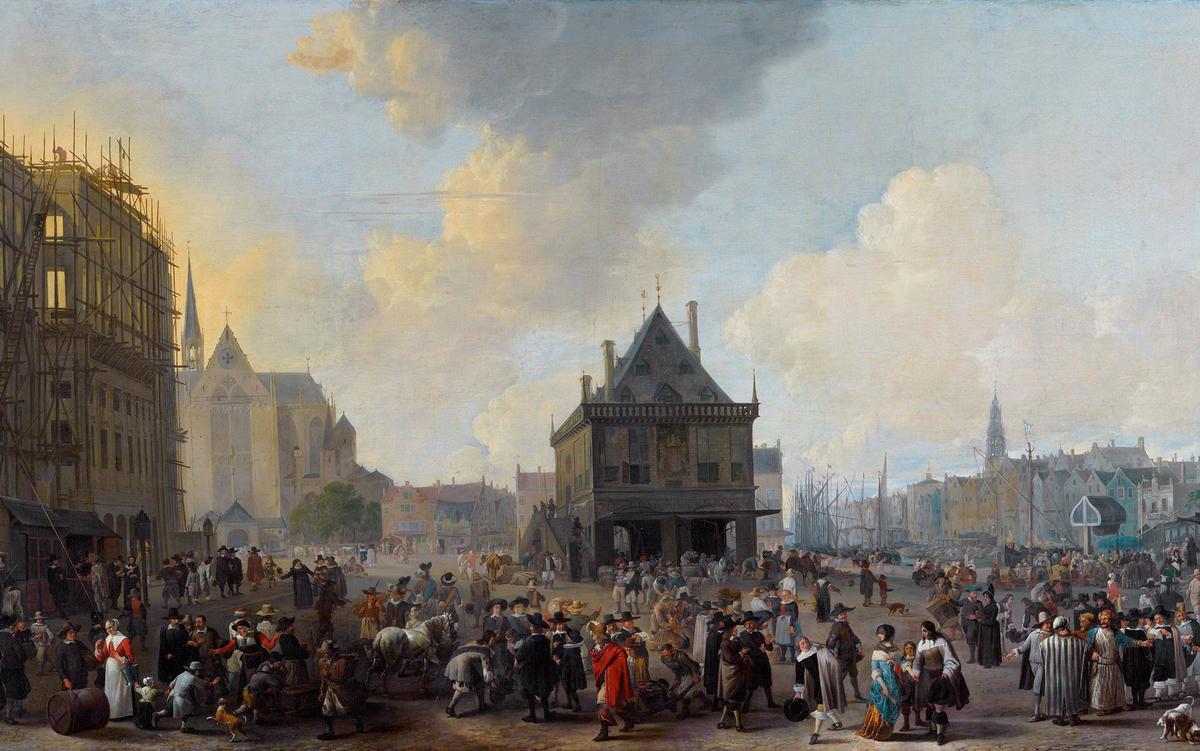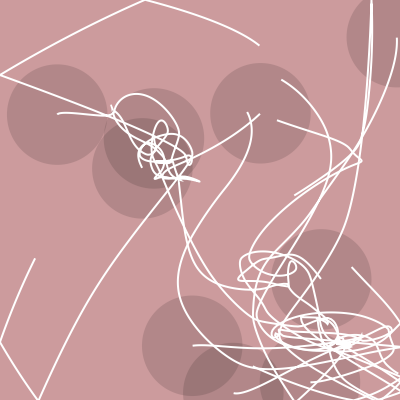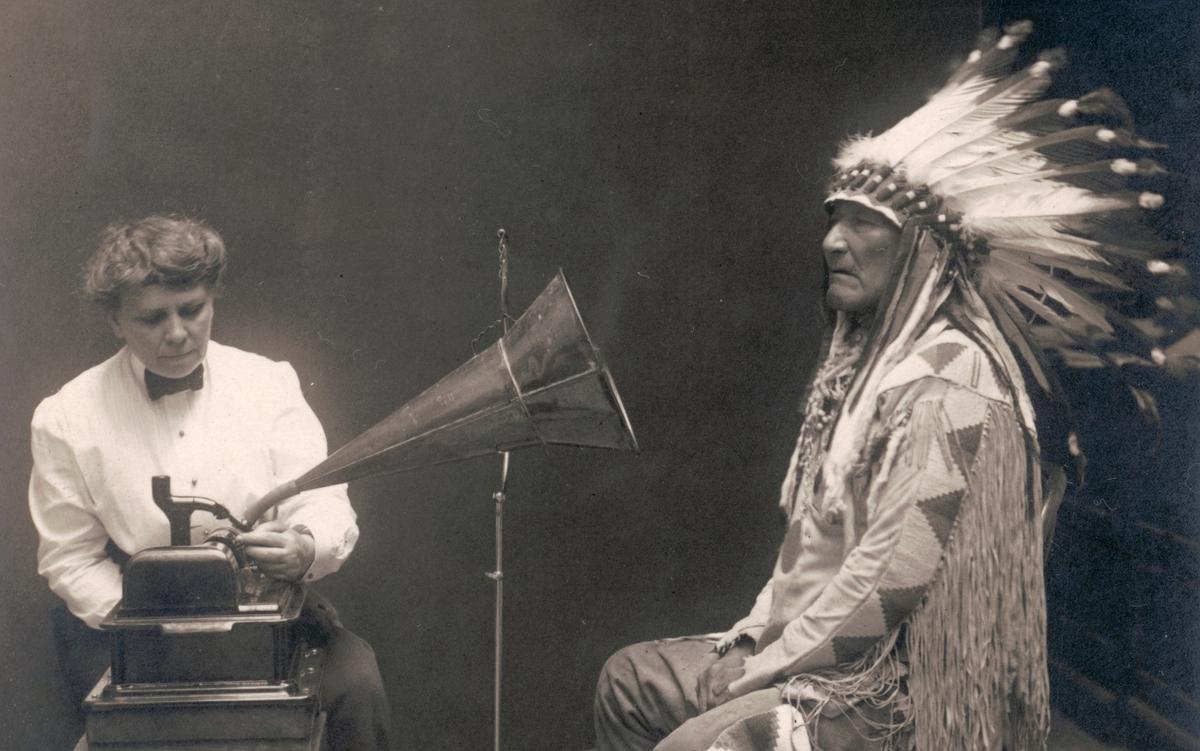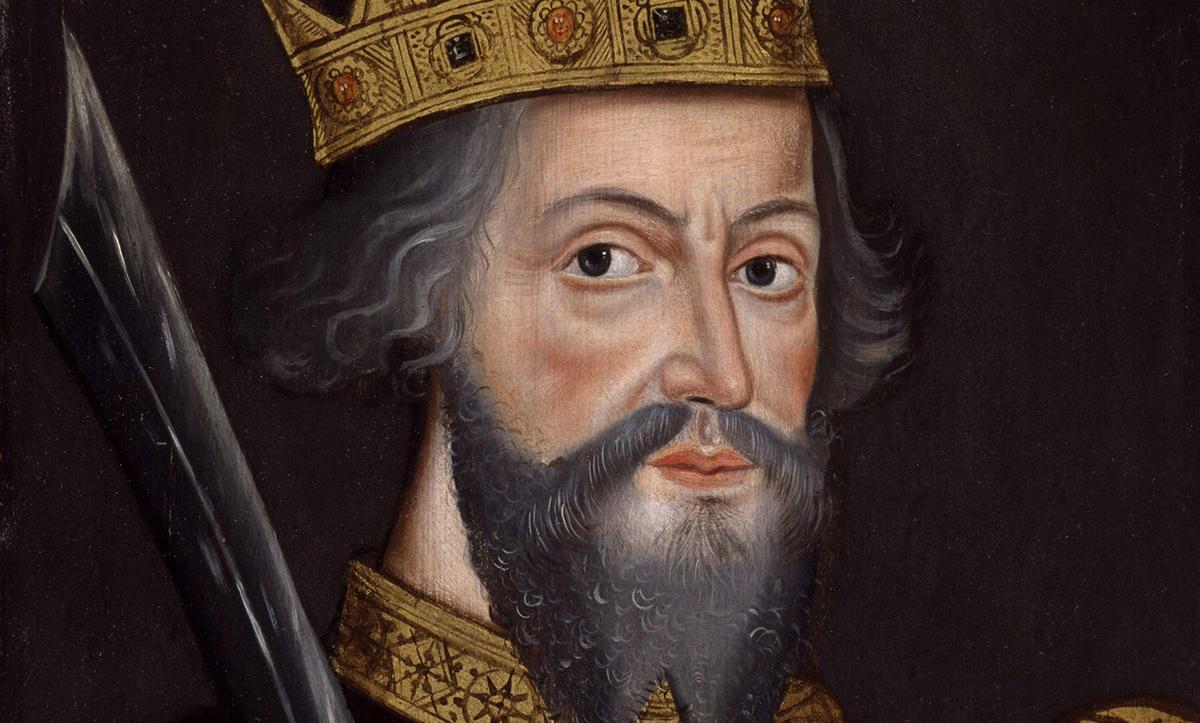The Roman Catholic Church created the modern family through a long-term policy campaign aimed at dissolving the pre-Christian pagan tribal system. This is one of the most important movements in human history — the advent of the nuclear family (house, husband, wife, children).
By dissolving the kinship system, the church managed to insert itself in political and economic life across Europe. That is arguably how Christianity, an obscure Mediterranean cult, managed to unite the the European peninsula under the banner of Christendom.
In his book, The WEIRDest People in the World, Henrich tries to advance our understanding of this story by applying a psychologist's lens.
Unfortunately, I don't really believe that you can perform psychology on people who died 1000 years ago. It seems to me that you might as well take use your PhD to do psychotherapy with your cat.
However, that's not the biggest problem with TWPITW. More importantly, Henrich brand of cultural evolution (which seems like quack science to me) wades into very harmful territory around race and colonialism. Henrich buries anything that could be construed as racist deep in the book and couches it in academic theory, so I'm not sure if this was Henrich being clumsy or savvy.
Let's start by talking about how Henrich tries to do historical psychology. To that end, Henrich's book advances two key arguments:
The church's restructuring of European family life was based on an inborn psychological aversion to incest that all humans posess.
The effects of the church's family program were felt most strongly on the psychology of Europeans, and the global economic consequences (this military and economic rise of Europe) played out through psychological mechanism.
Let me break these two points down.
The Incest Taboo
First, is it true that people have an innate aversion to incest, which served as the basis for the church's family program? I don't believe this. I checked the bibliography and looked it up online and I didn't see a convincing citation for this one. It rests on some home-baked supposition. Humans and animals tend to avoid sibling incest, therefore we have a psychological aversion to incest. However, research shows that we are equally averse to sexual relations with anyone we grow up with. We can reinforce or overcome that aversion in many ways, especially social influences. Unfortunately, lots of people are in fact attracted to their siblings. This is verified by DNA tests, psychological studies, and the homepage of any porn site.
Cultural Psychology
Second, is it true that the effects of the church's family program played out primarily through psychology? Again, I don't think so. Historians understand that the end of European kinship pushed Europeans from communal political structures (like chiefdoms and clans) to commercial political structures (like manors and townships). The new commercial structures were more impersonal and individualistic. Henrich argues that this prompted a rise in discipline, patience, industriousness, open-mindedness, and fairness in Europeans, leading to the Renaissance, the Reformation, the Enlightenment, and the Industrial Revolution.
Henrich tries to frame this as a cute psychological quirk, emphasizing the acronym "W.E.I.R.D." to describe white people. But the acronym says a lot more:
Western
Education
Industrial
Rich
Democractic
The implication is that Westerners are rich because they possess a psychological propensity for education, industriousness, and democracy. And, inversely, the rest of the world is not rich because those countries don't have a psychological propensity for education, industriousness, and democracy. And the reason why the people in those countries are uneducated, lazy, and narrow-minded is because they marry their cousins.
Race
If you've read this far, you're probably assuming that I'm being unfair to Henrich, but this is actually a pretty direct summary of his argument, without embellishment. (I've worked hard to tone down my own editorializing.) Take it straight from the man's Twitter: "More cousin marriage, less democracy," he says in one tweet. In another, he says that cousin marriage "reduces economic prosperity around the globe."
And he says basically the same thing in the book, warning that "One of the greatest threats to the functioning of voluntary associations" (e.g. schools, business, democracies) "was, and remains, intensive kinship."
Regardless of whether Henrich is correct about the impact of incest taboos fifteen centuries ago, his argument that cousin marriage today causes war and authoritarianism seems bonkers crazy and just simply racist. I don't think it's any coincidence that the laws and morés against cousin marriage in America today came from classist stereotypes about poor people marrying their cousins in the 1800s. In 2012, I wrote about this history:
In a review of the history of cousin marriage in the United States, Diane Paul and Hamish Spencer explain that American laws around cousin marriage emerged in the 19th and 20th centuries out of political classism. Cousin marriage in the United States was associated with immigrants and the poor, and as states began drafting marriage legislation, cousin marriage became an easy target for political lobbying. The same attitude persists today. In 2005, Texas passed legislation that banned cousin marriage in an effort to dissuade fundamentalist Mormons from settling in their state.
Today we continue to weaponize those stereotypes against poor rural communities and foreign countries — espcially in the Middle East, where cousin marriage continues to be practiced widely within a nuanced cultural context.
Henrich completely bucks cultural context. He says that Egypt, Iran, and Iraq haven't "fully integrated with the modern formal political and economic institutions that first arose in Europe" because they "have maintained quite intensive forms of kinship, probably for religious reasons." He says that the Islamic custom of marrying within clans (cousin marriage) "encourages particularly intensive forms of kinship, which as I've shown favor certain ways of thinking and feeling along with particular formal institutions (e.g., not democracy)."
After finishing the book, I went onto Twitter to see what people were saying about it. For some reason, I had assumed that Henrich's book was popular on the left. I was wrong. The most prominent tweets were racist screeds from alt-right accounts citing Henrich as justification for their views.
Alt-right blogger HBDChick actually claims that Henrich stole her research. (Noted racist Steve Sailer also says Henrich stole HBDChick's research.) In researching this book, Henrich worked with economist Duman Bahrami-rad who, in a 2018 paper on the subject, cited both HBDChick and Steve Sailer.
I want to believe that this was just an unfortunate academic intersection, but it's very hard to ignore all of the things that Henrich says which just sound like racism. For one thing, in explaining the rise of the Western world, Henrich devotes two sentences to "conquests, atrocities, and disasters, including genocide, subjugation, dislocation, oppression, slavery, and environmental devastation," with a hand-wave.
To explain some of the unique self-restraint typical of Northwestern Europeans, Henrich writes that they were the only culture with "long histories of agriculture and state-level governments that had fostered the evolution of cultural values, customs, and norms encouraging formal education, industriousness, and a willingness to defer gratification."
Henrich seems to be saying that non-Europeans are impulsive and lazy. He goes on to argue that the European propensity for patience led to low interest rates in Europe. Henrich completely disregards the entire discipline of economics to make this point:
If people became less patient... interest rates would go up... Now, because economists typically assume that psychology is fixed (a big mistake), their default explanations for changes in interest rates typically focus on economic growth or on changes in risk due to political shocks, plagues, or wars.
I don't really know what to say here, except that interest rates are indeed based on economic growth, political shocks, and social strife. As is, un-coincidentally, the proclivity for patience in any given culture.
All in all, it seems like Henrich wants us to ignore the facts and instead believe that patience — like industriousness and creativity — is an ethnic attribute and, furthermore, an ethnic attribute that defines the success or failure of an ethnic group.
To prove his point, Henrich shares shocking interest rates in various Asian countries at times between the 1300s and 1800s:
So Henrich believes that interest rates in Medieval East Asia were high because East Asians don't come from cultures with "long histories of agriculture" with cultural values like "formal education, industriousness, and a willingness to defer gratification." Of course, Japan, China, and Korea are all agricultural countries known for their cultural values of education, industriousness, and willingness to defer gratification. So much so that Malcolm Gladwell makes a logically-opposite yet similarly-racist argument in Outliers that Asians are good at math because of patience and discipline developed over a long history of agriculture.
One might hope that if a renowned academic like Henrich was going to use overt racism to make a point, it would at least be a compelling point, right? But maybe that is what we should take away from this. Racism and colonialism have been built on sketchy science since Europeans popularized them to satisfy European demand for labor (slaves) and capital (indigenous land). Ever since, white people have continually renewed our scientific rationalization for why everyone else deserves to be poor, subjugated, and enslaved. The science never makes sense, so we just keep rewriting it, trying to justify something that can't be justified. It's no surprise that Henrich quotes 18th-century racist David Hume on why white cultures are more civil than any others.
I suspect that's why Henrich tends toward gross generalizations. He frequently contrasts European cultures with "other societies" — as if that's a meaningful group. Even within Europe, he almost exclusively refers to all pre-Christian European cultures as a homogeneous whole. He persistently uses modern Indigenous peoples as surrogates for ancient European peoples, as if a 20th-century Amazonian has the same psychological profile as an 8th-century Anglo-Saxon.
It seems like Henrich thinks that all of this explains why countries in the global south have poverty. He says that European colonialism (which he characterizes as the transplanting of "impersonal institutions like representative governments, universities, and social safety nets, which all evolved in Europe" into "less complex societies" with "lower-level" political systems) was just a "misfit with people's cultural psychology," which led to "rising poverty, corruption, and malnutrition as well as to civil wars between clans, tribes, and ethnic groups."
In layman's terms: white people tried to share good things with primitive people, but they couldn't handle it, so they just devolved into war and corruption.
Henrich's generalization betray his focus. He uses the cutesy acronym "WEIRD," but he's talking about white people. Even still, he's selective. At one point he says that Europeans succeeded based on their "openness to new ideas, technologies, and practices from anywhere and everywhere." No one, would describe Europeans as historically "open to new ideas." Every movement and innovation in European history has been marked by protest and massacre — from the advent of Christianity through the Age of Sail into the French Revolution and the Scientific Revolution. Basically every major intellectual breakthrough — heliocentrism, germ theory, evolution, plate tectonics — met massive, often violent, resistance from the European establishment.
Henrich seems preoccupied with the positive attributes of white people, which he justifies with troubling Darwinian logic. Henrich thinks that European culture "evolved" the traits that led to its ascendance — a very sanitary worldview that absolves anyone of responsibility for any of the bad things that happened, while maintaining a racial tinge. Henrich tips his hand toward the end of the book in this aside:
It is possible... that cultural and economic developments I've described also created selection pressures on genes favoring some of the same psychological differences.
This is where Henrich, however fleetingly, speculates that maybe white people are genetically more hard-working, creative, and open-minded than "other" people. Okay, let's be clear: this is wrong. And bad.
But it's common enough today to think that evolution is some all-powerful, divine force guiding the animal kingdom toward greatness. It's as if our purpose as humans is to evolve well so that our genetic descendants proliferate our biological legacy like Genghis Khan. About men who find no mate, Henrich writes: "he will likely end up an evolutionary zero. This is a fate worse than death for natural selection." That's a slightly unhinged way to talk about procreation.
Whether or not he would appreciate the characterization, Henrich seems to be arguing that that, because of evolution, Europeans are more genetically more hard-working, democratic, and innovative compared to people from cultures where they marry their cousins.
Big History
This is a book in the Big History genre. Big History is the exploration of overarching trends in history. It has two subgenres: cosmic history, from the big bang to the present day; and Western history, from olden times to the modern period. The former has books like Steven Hawking's A Brief History of Time and Bill Bryson's A Short History of Nearly Everything, while the latter includes titles like Sapiens and The Dawn of Everything.
The latter topic — the transition from olden times to now times — has a specific area of study. It's called "The Great Divergence," and it's driven by the question, "Why did Western European economics accelerate dramatically in the second millennium while the rest of Afro-Eurasia ostensibly stood still."
Perhaps the most interesting thing about the genre of Big History is the conflation of cosmic history (big bang to today) with European history (olden times to today). We have a strongly-felt sense that the modern world emerged out of a distant cosmic background. We envision two moments: prehistory (incomprehensible) and modernity (familiar). Big History is the genre that explains the passage from prehistory into modernity.
Depending on the commentators, prehistory might concern the Big Bang, the birth of our planet, the age of the dinosaurs, the emergence of homo sapiens, the stone age, or even fairly-recent feudalism (which lasted well into the 1800s in some regions).
Modernity, however, is always the same thing: capitalism.
The history of the last one or two thousand years is an an obscure niche in the history of humanity and in the history of the universe. And yet the arch of Big History books always brings us to the same place: modernity. Capitalism. What Henrich calls "WEIRD." I think this is because it's so hard for us to imagine another way of being, other than our own. We so strongly believe that capitalism the conclusion of history.
I explain all of this because TWPITW is an entry in the genre of Big History. And one of the most important hallmarks of Big History is generalization and oversimplification. It's inevitable. Some writers can pull this off skillfully. In my opinion, Henrich can't.
Henrich breezily dismisses concepts like class and war in his insistence that actually psychology is more important. I'm sure a nutritionist would argue that diet is the most important factor in history. My test for a theory of history is: can it help predict the future? Marx's theory of historical materialism is seriously imperfect, but it's does pretty well on this test. I have no faith that Henrich's analysis could help us predict the future. For him, it boils down to "cousin marriage equals poverty." Anyone can see that many of the countries where cousin marriage is popular today — India, Qatar, Israel, Saudi Arabia — are on the ascent.
Marriage
It took me 900 pages to reach these critical conclusions. But for the first twelve chapters I enjoyed bits and pieces as a summary of European history. My favorite part of the book was chapter five, where Henrich recounts the history of the family unit in Europe.
At core, this is a book about a well-studied subject: the European Marriage Pattern (EMP). Henrich hits his stride when summarizes famous historian's work on marriage in Europe. He says that European family structures are very unique historically. Under the EMP:
Lineage links to both mother and father's ancestors
Marriages are not to kin
Marriages are monogamous
Married couples establish a new residence
The new residence does not include relatives
Henrich says that this family structure is virtually unheard of in history until Medieval Europe.
This is his thesis: The medieval Catholic Church inadvertently altered people’s psychology by promoting a peculiar set of prohibitions and prescriptions about marriage and the family that dissolved the densely interconnected clans and kindreds in western Europe into small, weak, and disparate nuclear families.
Between about 400 and 1200 CE, the intensive kin-based institutions of many European tribal populations were slowly degraded, dismantled, and eventually demolished by the branch of Christianity that evolved into the Roman Catholic Church.
The social and psychological shifts induced by this transformation fueled the proliferation of voluntary associations, including guilds, charter towns, and universities, drove the expansion of impersonal markets, and spurred the rapid growth of cities.
I accept most of this. The church's assault on kin-based polities certainly changed European society profoundly and introduced the idea of impersonal groups and relationships. Relationships previously based on mutual aid became commercial. Groups previously based on community became legal associations. The church had many reasons to push for these changes and seemingly found strategic opportunities to do so.
I only start to disagree when we talk about the formation of "impersonal markets." Lots of historians have explained why impersonal markets grew due to mercantalism, international trade, war, taxation, and rents. Many of the arguments for the transition to a commercial society are based on top-down changes imposed by kings and lords. Often the working people violently resisted these changes. If all of that is true, it doesn't make sense to say that these changes were caused by psychology. It's kind of like, "You're not breaking up with me; I'm breaking up with you!" "You can't fire me; I quit!" "You can't dissolve my customary communal structures; I reject them based on my proclivity for hard work and individualism!"
An imposed social change that is resisted by the culture in question can't really be caused by psychology, otherwise it wouldn't need to be imposed. So while I think the history of family is interesting, I don't necessarily accept the idea that family psychology was the driving force in history.
Pagans
My biggest irk in this chapter was that Henrich groups all European cultures together under the banner of "the tribal populations of pre-Christian Europe." Henrich makes almost no attempt to differentiate between different ethnic groups.
He summarizes a few generalizations about the diverse cultures of Europe (which are interesting if crude):
People live in kin-based groups
Wealth and family follow the male line
Groups owned territory collectively or through custom
Groups adjudicated disputes internally by custom
Groups cared for their sick, injured, poor, and elderly
Families arranged marriages for their children
High-status men could have multiple wives
Henrich says that only male citizens without living fathers had full legal rights, and fathers could even kill their slaves or children.
Christianity
Henrich's history begins in the 500s, when the Pope sent missionaries to England to convert the Anglo-Saxons and indoctrinate them with Roman cultural norms, especially prohibitions on cousin marriage and levirate marriage (a man marrying his dead brother's widow).
Over the coming centuries, the church made this a huge campaign, advancing their uptight agenda through alliances with local rulers. In 596 a king imposed the death penalty for anyone who married their stepmother.
In the 700s, the church started spreading the notion of "illegitimate children." A child not born to a church-sanctioned marriage between two Christians was not valid in the eyes of canon law. This restricted who could inherit wealth and titles. Of course, it took centuries for these norms to spread, in part because patrilineal inheritance was still foreign in much of Europe. For many pagans, property couldn't be bequeathed from father to child, as it was held by the community.
All of these restrictions ate away at the customary social and political structures of pagan Europe. Communities that had been held together through ties of kinship drifted apart. The new family unit, based on patriarchy and separate residences, gave rise to a new social structure: manorialism.
Feudalism
Under manorialism (a part of feudalism), immediate family members lived together in houses, separate from extended family. Families consisted of one father and one mother. This was true for virtually everyone, rich and poor, free and unfree (serfs in bonded labor had their own homes).
The new small-family homes suffered from a deficit of labor, which previously would have been shared by extended family. So well-off households hired labor from poorer houses. Adolescents went to work as servants in wealthier houses. Generally, this was a period of training for a young person before they went off to start their own home. (And Henrich says that this practice of "life-cycle servants" is unique in global history.) The role of the elderly also changed. Rather than ageing into positions of respect and authority, community elders moved into retirement, losing their position of leadership. This authority was instead held by religion and the clergy, with religious figured called "father" or "papa" (pope).
From the 800s, Europe devolved into a state of near-chronic warfare that lasted until more or less until the present day. In this state of unrest and power-jockeying, the church managed to seize tremendous power for itself. By 900 CE, the church had dissolved the tribes of Europe, and by 1000 CE in England, "through its relentless efforts, the Church had largely prevailed in reshaping Anglo-Saxon (English) kinship." The new family structure was defined by:
No marriage to blood relatives (up to sixth cousins in some cases)
No marriage to your dead husband's family (because he became your brother in law)
Monogamous (no additional wives, sex slaves, or brothels)
No marriage to non-Christians
God parents
No marriage to godparents
No adoption
Consensual relationship (romantic)
Separate residences for each family unit
Possessing, investing, and bequeathing private property (not held communally)
Church law included rules about non-blood relations, such as prohibitions on marrying your wife's sister. This is in fact the origin of the term "in-law"; The church encouraged people to see their spouse's family as their own family in law. In this period, the German word for "mother-in-law" went from an old word Swigar to a new compound term Schwigermutter, or "affinal mother." Yiddish, on the other hand, which is a Jewish dialect of German and was untouched by Christian law, preserved the original Swigar.
But Why?
Why would the church impose these laws? Well, for one thing, cultures through history have always had opinions about who anyone should be allowed to have sex with or marry. Someone of the same gender? Multiple people? Your sibling? Your cousin? Someone from your own tribe? These are the sorts of things that people debate and form strong opinions about. So perhaps it's just natural for a religious order to write down some guidelines.
There are good health reasons not to have sex with your siblings, and children born to first cousins do have a slightly elevated risk of genetic disease (that risk increases steadily over multiple generations of "consanguineous" breeding). Of course, that doesn't explain why the church would prohibit marriage to your sister-in-law, for example. Henrich says that this has to do with household harmony. In kinship groups, its likely that a man would have lived with many women, including his sister-in-law and his mother-in-law. So relationships with in-laws or step-relations were a potential source of serious passion and drama. This might have been regarded as undesirable, one way or another. It reminds me of this line of David Graeber, which I come back to often:
Communities, much though they are based on love, in fact, because they are based on love, will always also be full of hatred, rivalry and passion.
I think that's so beautiful, and helps us to understand humans as fervent creatures — and the church as trying to tame that fervor. As I read the book, I started to see the church itself as a colonial entity. Through the Middle Ages the church grew enormously by selling religious wisdom and services and expanding those sales into new markets. After the fall of the Roman Empire, Europe had a power vacuum, and the Christian church filled that vacuum. For the Christian church and Christian kings, the greatest obstacle to colonial expansion was probably the strong kin-based political groups that formed the glue of pagan social life. The church entered new territories with the promise of charity and salvation, and then gradually transformed local cultures by imposing new laws—laws which disolved the social glue of pagan life. Gradually, the church consolidated political power for itself and its allies.
Eventually, the church held enough sway to generate revenue off of these restrictions by selling annulments. Someone who wanted to marry a relative would either purchase a special dispensation from the church or else make charitable donations to atone for their sin. In Iceland, early civil servants were funded by such payments, which continued into the 20th century in some places. William the Conqueror (who conquered England in 1066) was excommuniacted for marrying a distant cousin. To atone, William and his wife both built impressive abbeys as gifts for the church.
In an even darker example, the church outlawed adoption and invented orphanages, which provided a steady labor force for the church. (Adoption wasn't legalized in England until 1926.)
The church also started popularizing the idea of bequeathment — that rich people could enter heaven (despite Jesus's pesky teachings to the contrary) by leaving some of their wealth to the church when they died.
If not left to the church, religious law said that property must be left to a natural heir. But the restrictions made this tricky: if a couple couldn't conceive, they couldn't find new partners or adopt a child. So many people left everything to the church. This was all wealth that would have previously been held by a community, but by the second millenium it was steadily flowing into the church coffers.
The Church became immensely wealthy during the medieval period through a combination of bequests, tithes, and payments for services such as annulments and dispensations for cousin marriage... Among these, bequests made up by far the biggest portion of revenue. By 900 CE, the Church owned about a third of the cultivated land in western Europe, including in Germany (35 percent) and France (44 percent). By the Protestant Reformation in the 16th century, the Church owned half of Germany, and between one-quarter and one-third of England.
So, the prohibitions gave the church a political power that was so strong they could turn it into a revenue stream and compel great rulers to do their bidding.
For me, this helped answer an annoying question: how was the church so damn wealthy? By the 1200s, while most Europeans lived in squalor, the church had launched the "age of cathedrals," and funded the Crusades.
The new family structures forced people to rely more on strangers and corporations (firstly the church). It also forced people to disperse, traveling to find partners. Perhaps for a while people thought that it was safe to leave behind their social support networks, as the benevolence of the church would keep them safe.
The Rise of Europe
Nonetheless, Europe was still at this point irrelevant to the influencers of the day. In 1086, the Muslim scholar Said ibn Ahmad said the civilized people (those who had contributed to science and learning) were the Indians, Jews, Egyptians, Persians, Greeks, and Byzantines. The lowest of the barbarians were the "black barbarians" in sub-Saharan Africa and the "white barbarians" in Europe. He said of the Dutch and the English:
The other peoples of this group who have not cultivated the sciences are more like beasts than like men. For those of them who live furthest to the north, between the last of the seven climates and the limits of the inhabited world, the excessive distance of the sun in relation to the zenith line makes the air cold and the sky cloudy. Their temperaments are therefore frigid, their humors raw, their bellies gross, their color pale, their hair long and lank. Thus they lack keenness of understanding and clarity of intelligence and are overcome by ignorance and apathy, lack of discernment, and stupidity.
Two hundred years later (1377), historian Ibn Khaldûn said,
We have heard of late that in the lands of the Franks, that is, in the country of Rome and its dependencies on the northern shore of the Mediterranean Sea, the philosophic sciences are thriving, their works reviving, their sessions of study increasing, their assemblies comprehensive, their exponents numerous, and their students abundant.
As Ibn Khaldun observes, something was changing in Europe by the Late Middle Ages. At this point, I think Henrich's narrative falls apart, in part because he's missing something very important: the effect of the Medieval Warm Period on the European economy.
It's interesting to think that the church was the single greatest landholder in Europe (perhaps the world) when the European climate spontaneously warmed, increasing crop yields and stimulating market exchange. The warm climate made huge tracts of previously useless land available for cultivation, prompting a wave of colonialism into the European highlands, expanding the legal jurisdiction and wealth of the church. This era of prosperity created funding for education, rising up a new generation of religious clerks to transcribe and enforce church law. The warm weather also enriched and fortified local rulers, who were inspired by the church to write their own codes of law. In the 1200s, the King of England wrote the Law of Winchester, which established modern policing. Perhaps its true that the explosion of written law and commercial activity in the High Middle Ages was caused in part by the new family structure, which broke down communalism and gave rise to commercialism. However, Henrich completely ignores the role of climate here. (And, for that matter, I feel very skeptical that you can call this a "psychological" change rather than a social or political change.)
The legal revolution reflected changing morality. German laws in the 1100s said that fathers were no longer liable for murders or assaults committed by their family members. Increasingly, law pertained to individuals and, even more specifically, their intentions. For instance, was a killing intentional or accidental? This reflects a change from relationships mediated by community to ones mediated by contracts. These new laws were increasingly abstract, since they were God's laws. This meant that even kings were (in principle) subject to the same rules as peasants.
By the Late Middle Ages, Europe was highly commercialized and legalized. Disputes were settled in court rather than by duel. Land could be bought and sold. Ordinary people could work for wages. Rulers promoted free exchange to promote commerce, encourage population growth, and expand territorial control. The number of new cities boomed. After 1200, Europe saw the incorporation of 40 new cities per decade. By the 1300s, almost everyone in England was within reach of one of the country's 1200 weekly markets.
As Henrich goes on, he tries to extend his theory of the psychology of the European family into the Enlightenment and the Industrial Revoltuion. I think this gets pretty problematic. But I'll recount some of the facts, since the data points on their own are interesting.
European cities started installing mechanical clocks in the 1200s. By 1450, 20 percent of towns and cities with more than 500 residents had a clock. By 1600, almost every church had a clock. Under the guilds, efficiency of weaving high-quality wools increased 300 percent from 1300 to 1600. The price of watches dropped 75 percent from 1685 to 1810.
The popularity of clocks and watches reflected a newfound preoccupation with time, which was partly based on the practice of wage labor, for which business owners paid based on the number of hours worked. Increasingly, people believed that "time is money."
In London, the workweek lengthened by 40 percent in the second half of the 1700s. People added 30 minutes to the workday, started working six days a week, and took fewer holy days. By 1800, people were working 1000 hours more per year (19 hours per week).
Henrich says that people in commercial societies work 10 to 15 hours more per week than those in subsistence societies. He also says that the efficiency of English threshers doubled from the 14th to the 19th century, with no improvements in technology, meaning people were just working harder and longer.
So, having already started working longer hours when they switched from communal societies to commercial ones in the Middle Ages, Europeans were now working even more hours as the employers of the European enlightenment demanded more productivity from their growing population of workers.
All of this coincided with the rise of individualism. In 1628, England passed the Petition of Rights and then later the Bill of Rights, which anticipated the US Bill of Rights. People became obsessed with discovery (a word that entered the English language in the 1500s), invention, and (accordingly) plagiarism. People started naming ideas, places, body parts, and philosophies after individuals.
Ultimately, Henrich says that the European family structure spread to the rest of the world. From 800 to 1800, the number of people living in European cities of 10,000 people or more rose twenty-fold. Over the same period, the population of the Islamic world less than doubled and China's was flat. European-style marriages arrived in Japan in the 1880s and China (where Chinese fathers could get off with a warning for murdering their sons into the 20th century) in the 1950s.
Henrich's Rise of Europe
Toward the end of the book, Henrich starts to state his thesis more explicitly:
Proposed explanations for "Why Europe?" (ed: note this phrase) emphasize the development of representative governments, the rise of impersonal commerce, the discovery of the Americas, the availability of English coal, the length of European coastlines, the brilliance of Enlightenment thinkers, the intensity of European warfare, the price of British labor, and the development of a culture of science. I suspect that all of these factors may have played some role, even if minor in some cases; but, what's missing is an understanding of the psychological differences that began developing in some European populations in the wake of the Church's dissolution of Europe's kin-based institutions... let me underline a key point: none of these other explanations for the Industrial Revolution can account for the psychological variation and change I’ve documented in the last 12 chapters. So even if these other explanations are partially right, they’ve failed to notice the mastodon in the courtyard.
It's shocking to think any historian would characterize representative government, commerce, global conquest, coal power, maritime trade, the Englishenment, war, labor markets, or science as having a "minor role" in the rise of the West. I think that's a reflection of Henrich's hubris here. It seems like he wants to have the big idea that explains everything. (And, as an aside, directly contrary to his own quote here, Henrich heavily cites a book with the literal title "Why Europe" which is explicitly about changes in European populations in the wake of the Church's dissolution of Europe's kin-based institutions.)
The Big Picture
Toward the beginning of the book, Henrich explained the psychology of patience by describing the marshmallow test: a child gets a marshmallow, but they're offered a second marshmallow if they can wait twenty minutes before eating the first one. There's also an adult version, where the participant is offered $100 today or a greater sum ($150, $175, $200) a year from now. (The stock market would give you around $106.) Based on these tests, Henrich says that people from some cultures are more patient.
But critics point out that the marshmallow test is actually a measure of security. If someone is hungry or financially insecure, they have a strong insensitive to take the initial offer rather than waiting. Henrich doesn't just ignore that criticism, he blatantly contradicts it: since poorer countries perform worse on the marshmallow test, argues Henrich, they must be poor because they are less patient.
So, in the end TWPITW is primarily a justification for colonial racism and an erasure of colonial violence.
Henrich doesn't stop at racism. He also pulls in class and gender. He describes class consciousness as a "set of folk beliefs," reassuring us that "affluence plays little role in shaping these global psychological differences" (citation needed). So don't worry about economic inequality: it's not psychology, so it is irrelevant.
Women, Henrich tells us, had a great time in Medieval Europe, because... they had the option to join monasteries. Henrich's data point for this is that women had more options "than in most societies" (citation needed again). Again, this is a very strange claim to make in a book that is literally about the invention of the patriarchy, covering the period of the witch trials and the end of women's reproductive freedom. (To be clear, Henrich does not once mention misogyny or the oppression of women.)
All in all, it feels like Henrich doesn't really like women all that much, which is clear when he lays out this gem:
The Church, through the institution of monogamous marriage, reached down and grabbed men by the testicles... monogamous marriage suppresses men's competitiveness, risk-taking, and revenge-seeking while increasing their impersonal trust and self-regulation.
Aside from being completely gross, the logic behind this is also absurd. Henrich says that bachelors tend to have more testosterone, so therefore monogamous marriage suppresses testosterone. He makes no attempt to even investigate that mess of causation/correlation conflation.
Conclusion
Overall, this was not a good book. It wasn't good for psychology. It wasn't good for history. It wasn't good for anthropology. I feel likeI learned a about the history of the family unit in Europe, but I also learned that a lot of people who care about the history of the family unit in Europe are racists.
Henrich's citations really aren't great, and it can be quite hard to find sources for his facts. However, his bibliography is quite strong. I spent some time mining it for recommendations, including Robert Ekelund's trilogy on the economic history of Christianity. I'm already half-way through the first book in the trilogy, which examines Christianity as a monopolistic business enterprise, and it's fascinating.
I also took note of the book A Farewell to Alms by economic historian Greg Clark. I found a copy of that book and leafed through it, when I stubmled upon this passage about early modern England:
The richest men had twice as many surviving children at death as the poorest. The poorest individuals in Malthusian England had so few surviving children that their families were dying out. Preindustrial England was thus a world of constant downward mobility. Given the static nature of the Malthusian economy, the superabundant children of the rich had to, on average, move down the social hierarchy in order to find work. Craftsmen’s sons became laborers, merchants’ sons petty traders, large landowners’ sons smallholders.
This completely encapsulated everything I was wondering while I read Henrich. Under the individualistic Christian family structure, the average person was more or less an "evolutionary zero." As Henrich would say. The economy was so terrible that even the wealthy were falling off of the socioeconomic ladder faster than they could climb it. This wasn't a period of creativity and open-mindedness. It was a period of profound suffering and desperation. If we want to understand how Europeans invented whole new fields of science and then weaponized them against the rest of the world, it might be better to ask "What were they doing wrong?" rather than "What were they doing right?"


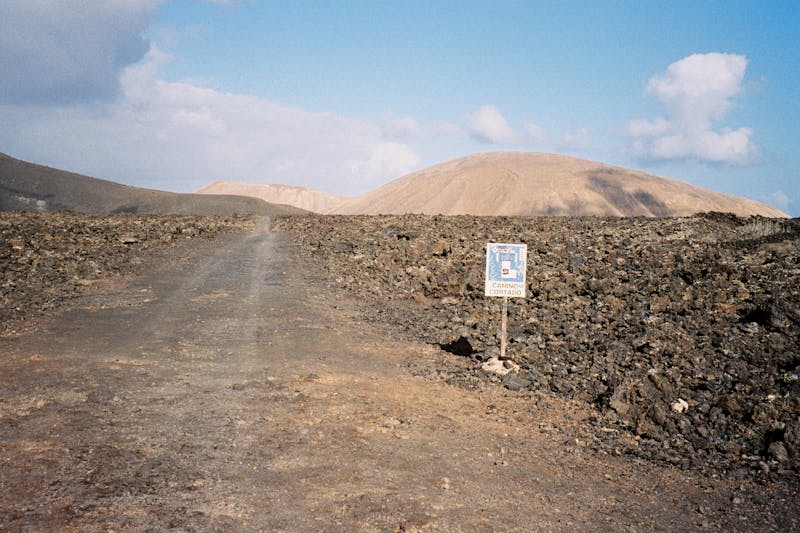



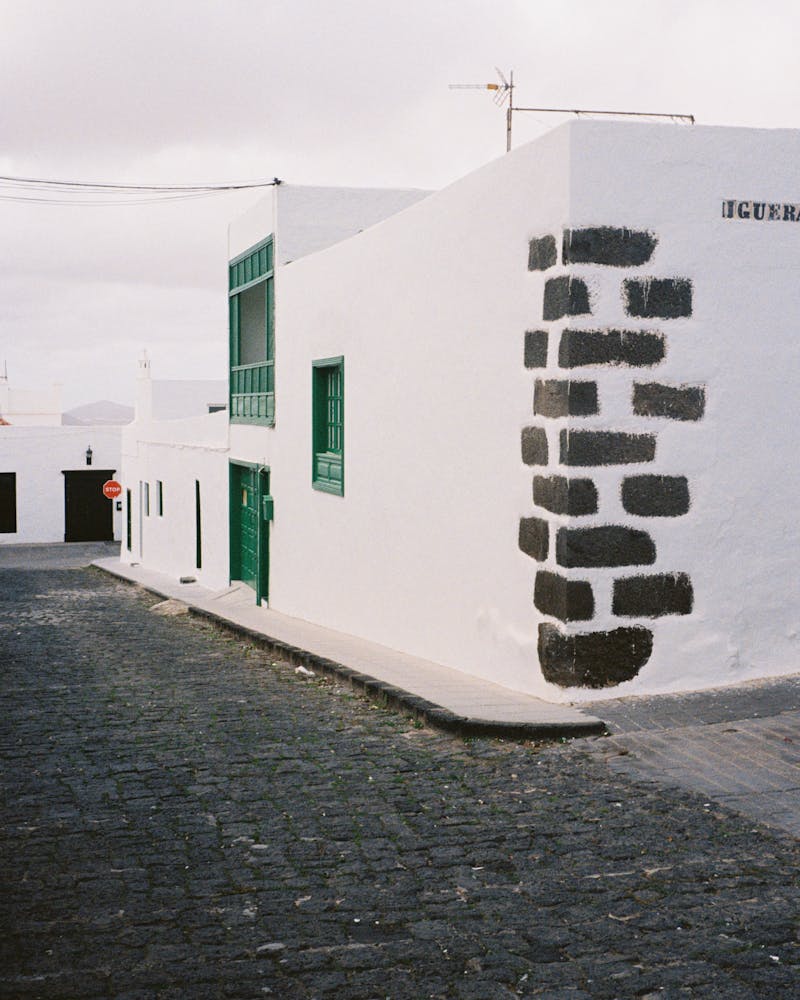









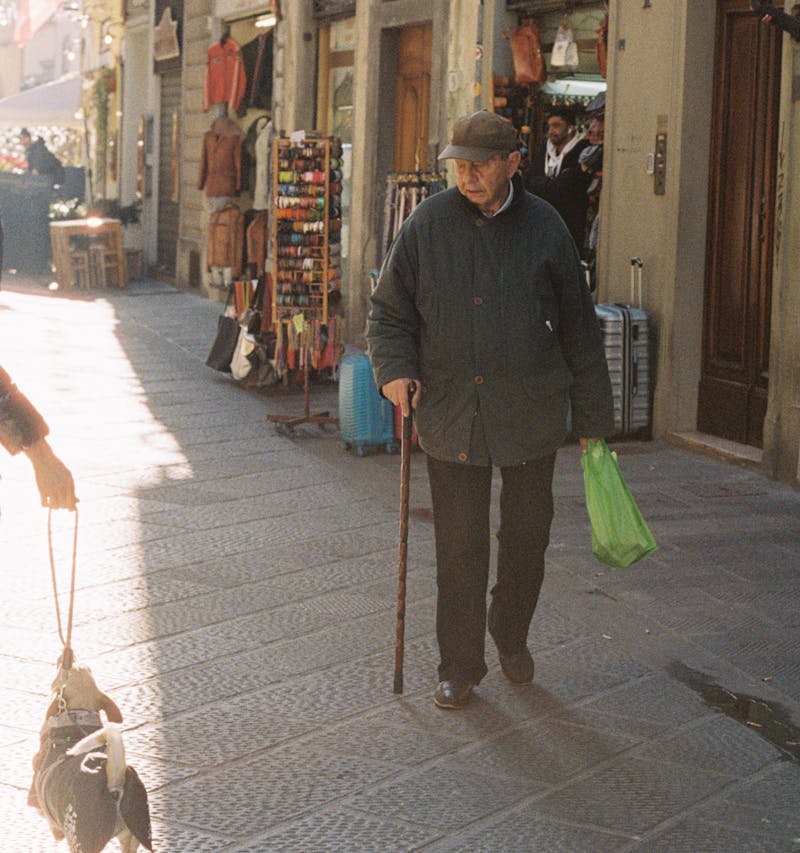




 When you feel the drizzle on your coat.
When you feel the drizzle on your coat./https%3A%2F%2Ftf-cmsv2-smithsonianmag-media.s3.amazonaws.com%2Ffiler_public%2F50%2F4e%2F504e3bcc-aaf2-49e3-bc81-8bf0ceaaef6d%2Fearly_sassafras_leaves.jpg)





